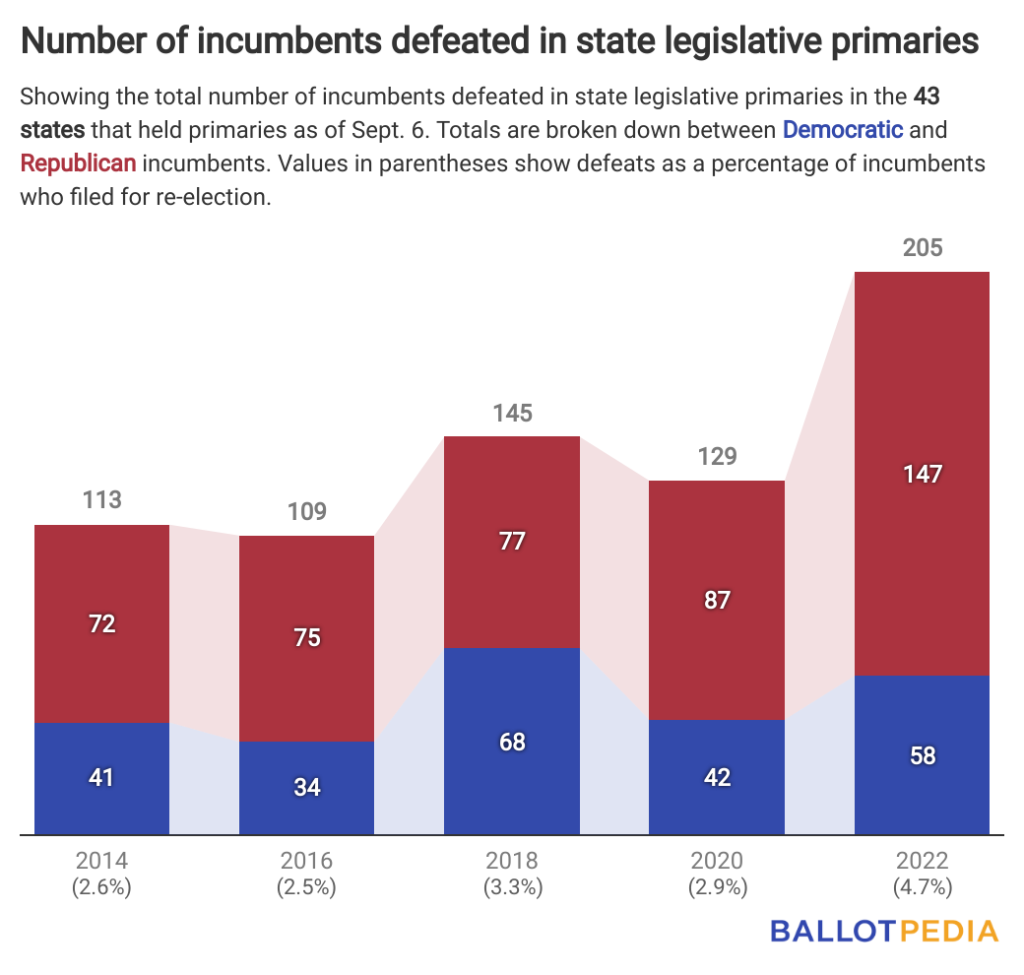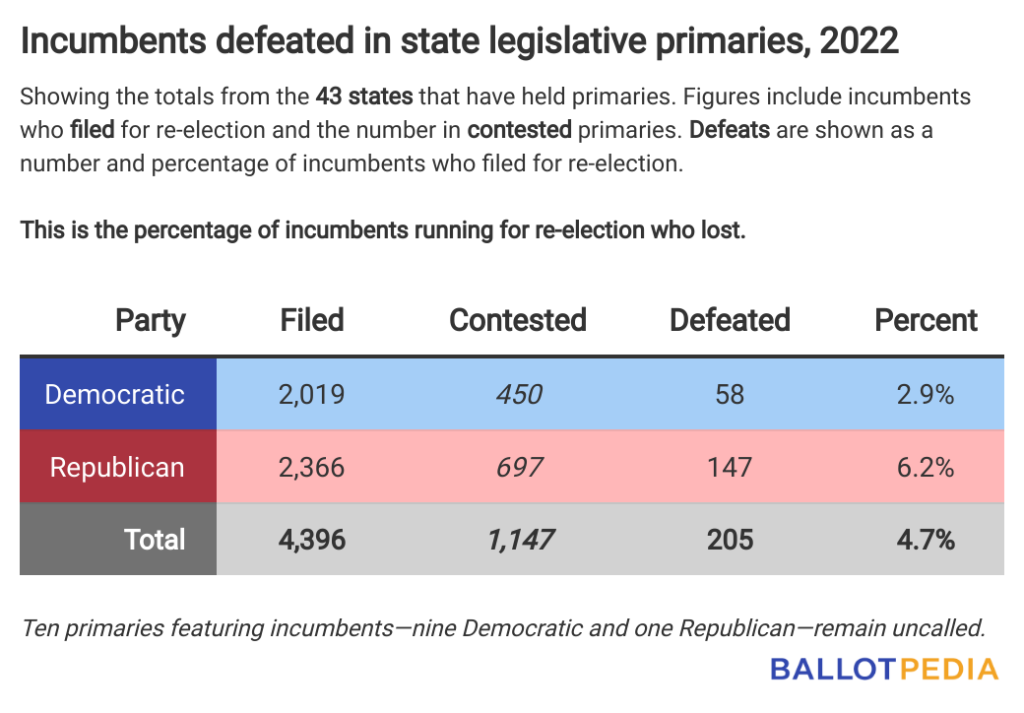So far this year, 205 state legislative incumbents—58 Democrats and 147 Republicans—have lost to primary challengers.
Across the 43 states that have held primaries, 4.7% of incumbents running for re-election have lost, an elevated level of incumbent losses compared to previous cycles.

These totals include data from state legislative elections held in Massachusetts on Sept. 6. No incumbents lost to primary challengers but eight races featuring incumbents—seven Democrats and one Republican—remain uncalled.
This year, Republican incumbents have lost at a higher rate than Democrats. Of the 2,366 Republican incumbents who filed for re-election, 147 (6.2%) have lost to primary challengers. For Democrats, 58 of the 2,019 who filed for re-election (2.9%) have lost.

Forty-six of these 205 incumbent defeats (22%) were guaranteed due to redistricting. When states redraw legislative lines, incumbents can oftentimes end up in a new district with other incumbents leading to incumbent v. incumbent primaries or general elections. Since, in these races, there are more incumbents running than nominations or seats available, at least one incumbent must lose.
Of the 43 states that have held primaries so far, 11 have Democratic trifectas, 21 have Republican trifectas, and 11 have divided governments. Across these 43 states, there are 5,679 seats up for election, 90% of the nationwide total.
The figures for 2022 will likely increase. In addition to the uncalled races in Massachusetts, there are two other uncalled primaries featuring incumbents: one Democratic and one Republican.


